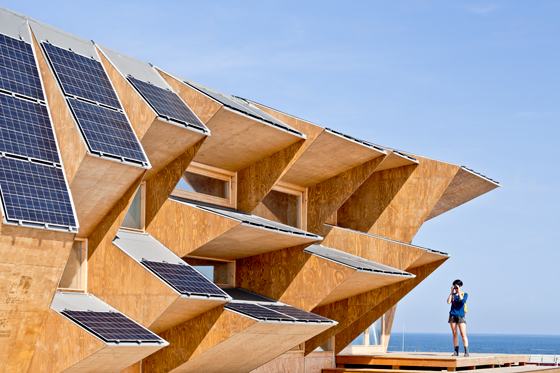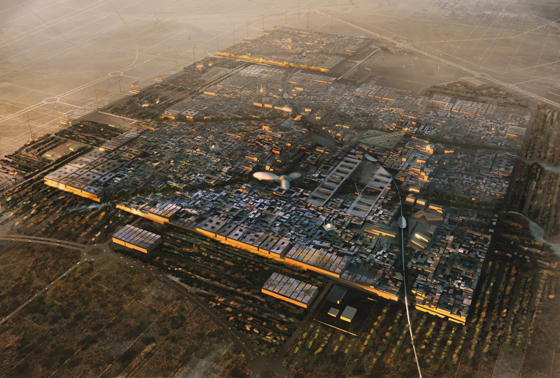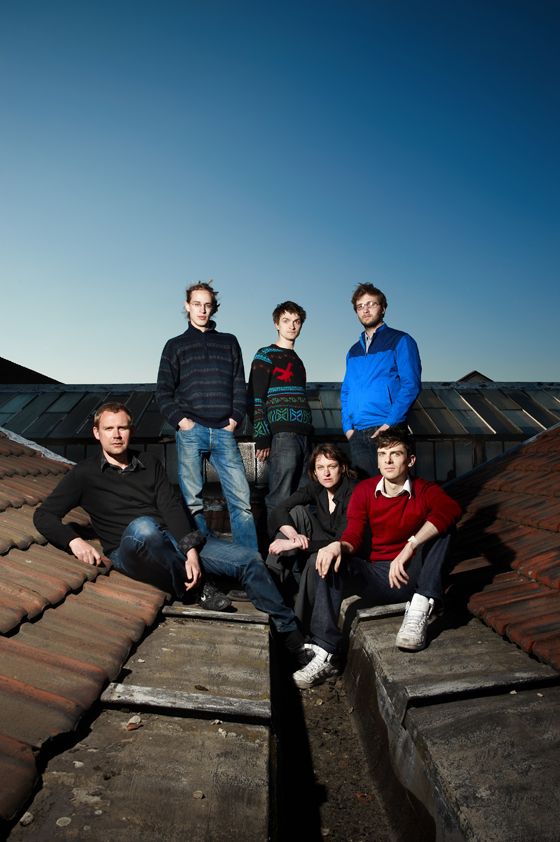Behind the green door: Oslo Architecture Triennial by Rotor
Texto por TLmag
Brussels, Bélgica
20.02.14
“Sustainability” is a deflated term that includes everything and nothing. Its repeated use, almost ad nauseam, does not seem to have served it well. What is left behind is an empty shell, which is difficult to take seriously.
And yet, it is precisely for its weak semantic borders that the collective Rotor has been interested in the term, trying to understand what ideas the concept, first coined at the end of the 80s, stands for today. Until 1st December, the Belgian collective is bringing its research to Oslo for what promises to be a rich and stimulating Triennial that will be entirely dedicated to examining the theories and practices that have been associated with the word “sustainability.”
ENDESA Pavilion a self-sufficient solar prototype installed at the Marina Dock, for International BCN Smart City Congress; photo Adria Goula

ENDESA Pavilion a self-sufficient solar prototype installed at the Marina Dock, for International BCN Smart City Congress; photo Adria Goula
×TLmag: Why did you choose to organise the all Triennial around a sole word?
Rotor: The main architecture festivals often deal with heterogeneous projects, which are brought together under a rather vague label. We wanted to limit the field: the three main exhibitions of the Norwegian event will focus on the concept of 'sustainability', but each in their own way. It is undeniable that this word has annoyed a great many people in the world of architecture, critics of architecture included; yet we find it important to critically investigate the notion for it denotes, today more than ever, a endless series of projects, and it has significant political clout. There is a need to question how an abstract concept, almost anyone can agree with, is translated today into very concrete designs, rules, and systems of morality. We believe that it is particularly interesting to organise this Triennial in Norway, a country whose economy largely relies on the oil industry, and where discussions on sustainability therefore can't be approached in a naive manner. Our exhibition started from the question: What do all projects that claim to be sustainable have in common? Do they share something other than an intention?
TLmag: Do completely sustainable projects really exist?
Rotor: We live in an unsustainable world, climate change is but one of the indicators that this is the case. All things are connected directly or indirectly in totally unpredictable ways. Therefore, for a project to be called sustainable, there must some kind of conceptual boundary around it, which keeps it apart from its unsustainable context. The sustainable house is part of the unsustainable city, the sustainable city is part of the unsustainable economy, and so on. One interesting case is Masdar City, a zero-carbon and waste project, designed by Foster & Partners architects, and currently under construction next to Abu Dhabi. While it is said by many to be one of the largest sustainable cities, it is striking to see that most claims about Masdar are strictly limited. The wall that surrounds the city center literally separates the sustainable inside from the unsustainable outside.
Foster + Partners, Masdar City, Abu Dhabi, (2006- on going). Here in a previous version of the project

Foster + Partners, Masdar City, Abu Dhabi, (2006- on going). Here in a previous version of the project
×Single family house in Leuven, Belgium, 2012; photo Rotor
TLmag: Then what is to be gained from promoting sustainable projects?
Rotor: For us, the most powerful argument in favor of sustainability, regardless of how vague this concept has become, is that it has created an atmosphere where doubt is possible. All of a sudden the most economic option is no longer by default the best option. For example, you can take the aspects of sustainability that are introduced in daily life, that are often easily dismissed as superficial – such as sorting domestic waste, or carpooling – as a way to expose people to alternative ideas. If sustainability has not contributed to any actual progress, it certainly has the merit to have introduced change, showing that the world we live in is not a given that must be accepted unconditionally. And that is quite an accomplishment!
---
Rotor
99 rue de Laeken, 1000 Brussels
rotorasbl @ gmail . com






